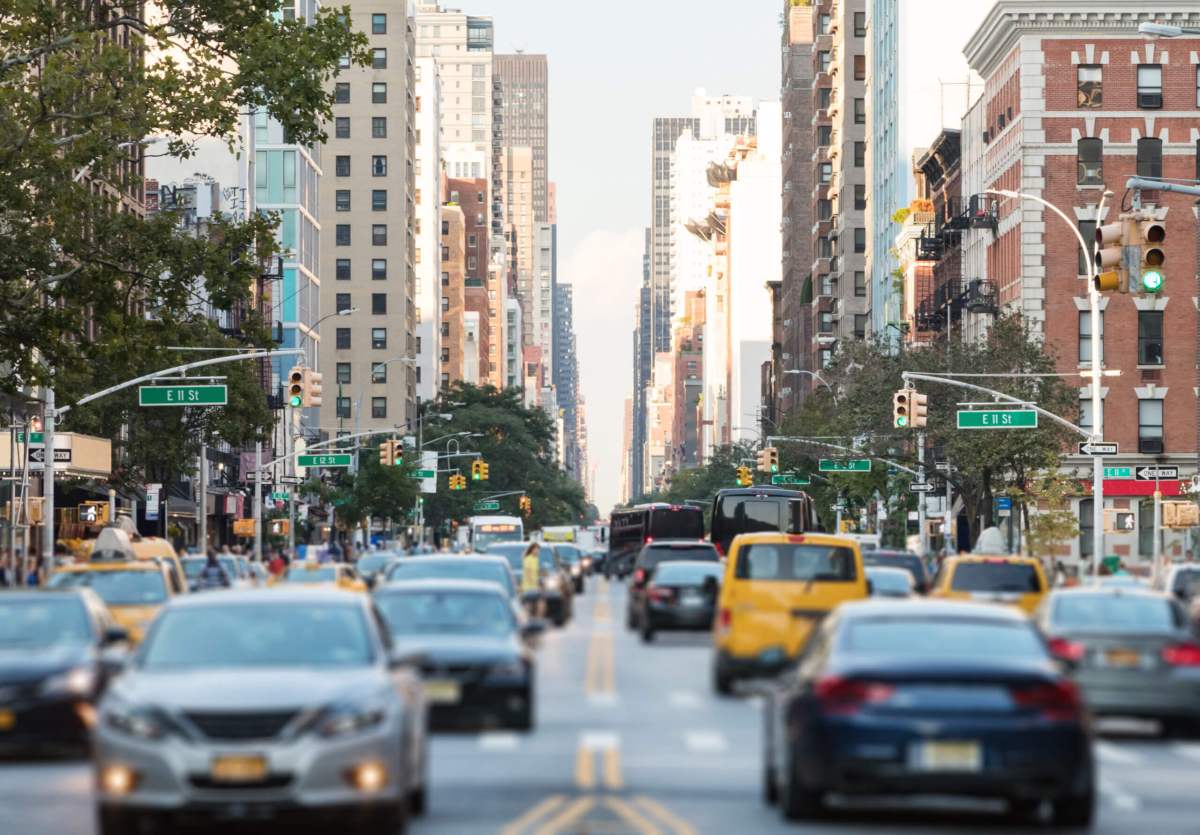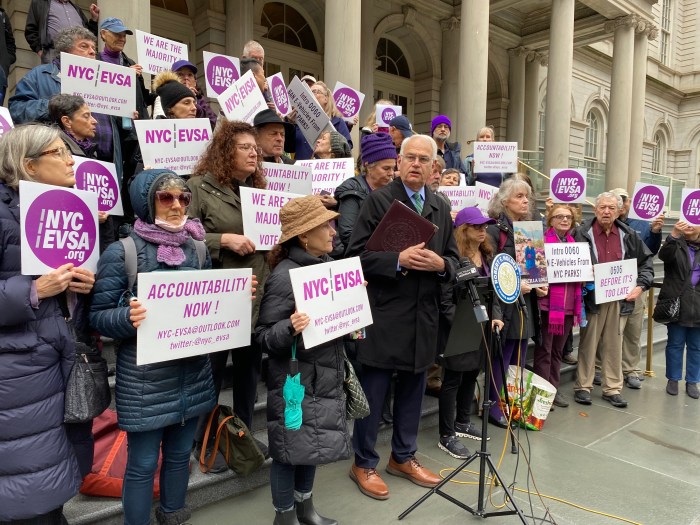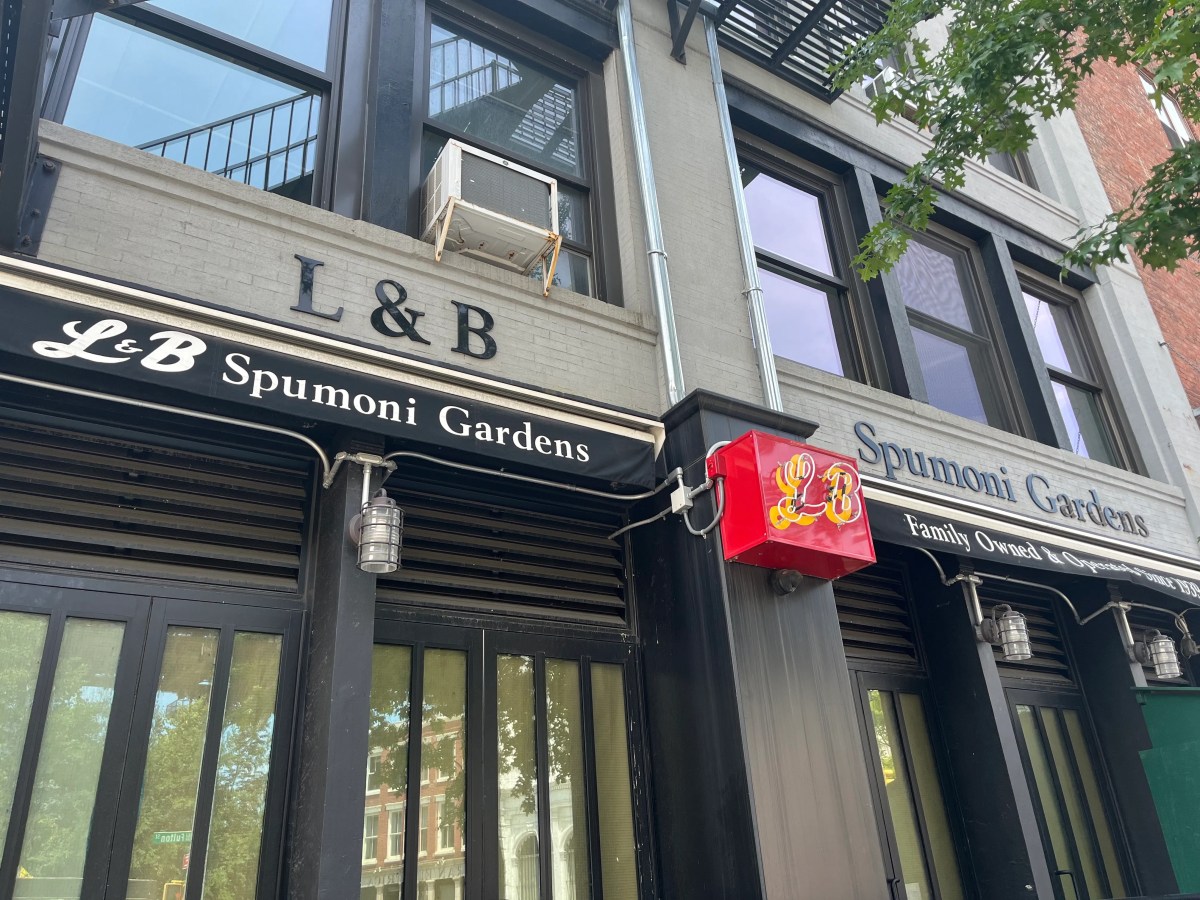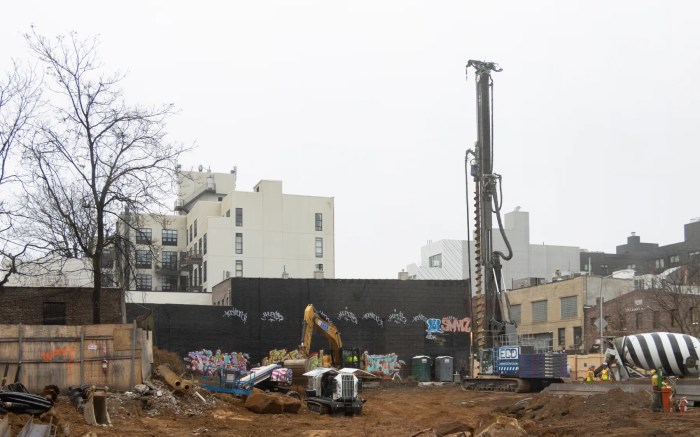The MTA is facing yet another federal lawsuit seeking to block its congestion pricing program, this time filed by the city’s largest teachers union and the Borough President of Staten Island.
The United Federation of Teachers and Staten Island Beep Vito Fossella filed the lawsuit in Brooklyn federal court on Thursday and named the MTA, the Federal Highway Administration (FHWA), and the city’s Department of Transportation (DOT) as defendants.
The plaintiffs, who also include six teachers who are members of UFT, say the MTA conducted a “rushed and hurried” environmental review process in violation of federal law for the program to toll drivers entering Manhattan south of 60th Street, which is expected to be implemented this spring. The lawsuit makes similar claims as another one filed by New Jersey in July, and has the potential to beset congestion pricing with further delays.
The MTA was able to conduct a more abbreviated “environmental assessment” instead of a full environmental impact statement for the program, which nonetheless produced a mammoth 4,000-page document that the feds approved last year. The MTA has previously defended the rigor of its environmental assessment and is currently in settlement talks with New Jersey.
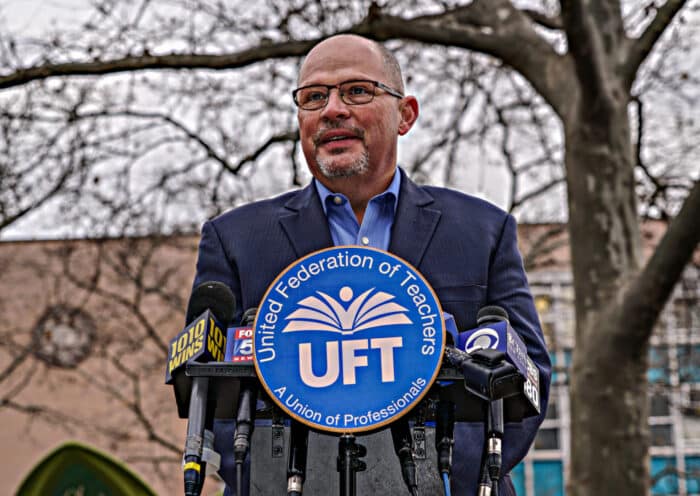
“The environmental review process for congestion pricing involved four years of consultation with government agencies, public outreach meetings, and engagement with tens of thousands of public comments, with hundreds of pages of painstaking detail released that considered impacts on traffic, air quality, and environmental justice across the metropolitan area,” said John J. McCarthy, the MTA’s chief of external relations.
“And if we really want to combat ever-worsening clogged streets,” McCarthy continued, “we must adequately fund a public transit system that will bring safer and less congested streets, cleaner air, and better transit for the vast majority of students and teachers who take mass transit to school.”
The FHWA did not immediately return a request for comment.
After months of public review, the MTA approved a tolling structure with a base fee of $15, with larger tolls for trucks, overnight discounts, and breaks for low-income drivers. The congestion pricing plan, which has been done in other global cities but never in North America, aims to reduce punishing gridlock on Manhattan streets and minimize carbon emissions from automobiles, while raising money for the MTA’s infrastructure needs.
But the program has been controversial from the start, and the hubbub hasn’t dissipated since the MTA rejected nearly all of more than 120 requests for exemptions, including from teachers and residents of Staten Island.
Four of the teacher plaintiffs are residents of Staten Island who teach in Manhattan, commuting by car instead of by mass transit, which they say would take hours. One plaintiff, special education teacher Paul Caminiti, says the tolls would cost him $3,000 per year, while another, Hannah Choi, says taking mass transit would require her to start her day even earlier than she already does, at 5 a.m.
All of them are planning or considering transferring to schools in Brooklyn or Staten Island in the hopes they can avoid the toll, the lawsuit says. More than 11,000 UFT teachers live on Staten Island, say the plaintiffs.
“Teachers, firefighters, police officers, EMS workers, sanitation workers, and other public sector workers who are essential to the fabric of New York City would be forced to shoulder the burden of the MTA’s latest fundraising gambit,” reads the lawsuit. “Some are already considering changing jobs because of the proposed tolls.”
The lawsuit also contends congestion pricing will simply divert car traffic to areas outside the congestion zone, and by extension increase pollution in outlying areas like Staten Island, the Bronx, and northern New Jersey. Plaintiff Frank Garcia, a Rockland County resident who teaches in the Bronx, is “concerned” that congestion pricing will increase traffic near his school in the south Bronx, creating greater competition for parking and increasing the already-high risk of asthma for those who live and work in the area.
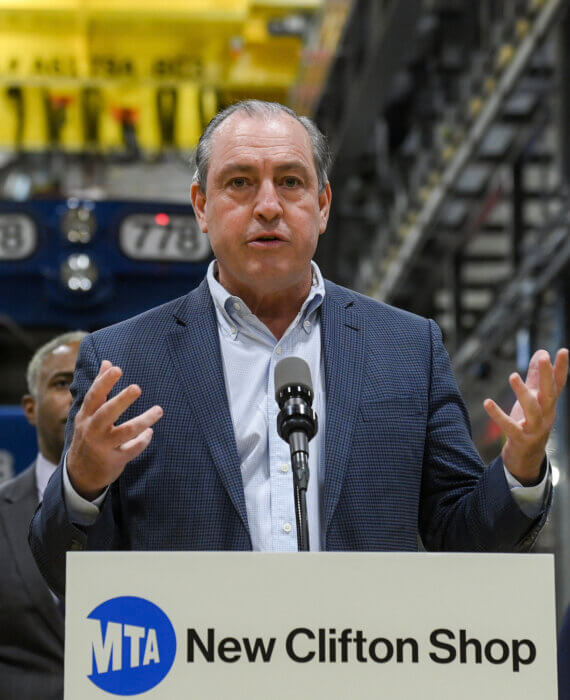
In its environmental assessment, the MTA committed to millions of dollars in investments for mitigating air quality concerns in the Bronx, including electrifying diesel-spewing refrigeration trucks at the Hunts Point Market and installing air filtration systems at local schools.
The lawsuit also notes that many members of UFT and other public sector unions live in “transit deserts,” such as Staten Island, whose rail service is not connected to the rest of the city. The MTA has contended that few, if any, New York City residents live in a transit desert since there are few places in the city far from either a bus stop or train station.
The plaintiffs lament that the program would require car commuters to “ride the very same inadequate and ill-equipped public transit system that needs the billions of dollars in contemplated repairs and improvements” used to justify congestion pricing in the first place, which was passed by the State Legislature in 2019 after being proposed by advocates and officials for decades.
Despite the settlement talks, New Jersey’s lawsuit has already caused delays to some of the work the MTA hoped to fund with congestion pricing, namely modernizing Great Depression-era train signals on the A/C line in Brooklyn. It’s unclear if the UFT lawsuit could cause further delays. Congestion pricing revenue would also be used on projects like making subway stations accessible for people with disabilities, climate resiliency projects, and keeping the aging system in a state of good repair.
“Congestion pricing will reduce dangerous emissions from cars and trucks that are the leading cause of child asthma, it will reduce the amount of time students spend in traffic on buses getting to their schools, and it will improve subway and bus service for students who rely on public transit every day,” said the Congestion Pricing Now coalition, which includes several companies, nonprofits, and advocacy groups that support the plan. “We hope to see this lawsuit dismissed, and instead see this critical program implemented swiftly.”
The MTA’s proposal will be subject to further rounds of public comment in February and March, before a final vote by the MTA Board on whether to approve and implement it. The MTA’s contractor has already started installing toll gantries at ports of entry to the central business district.
The UFT has been on a litigious tear of late, having sued the Adams administration last month over hundreds of millions of dollars in proposed budget cuts.



